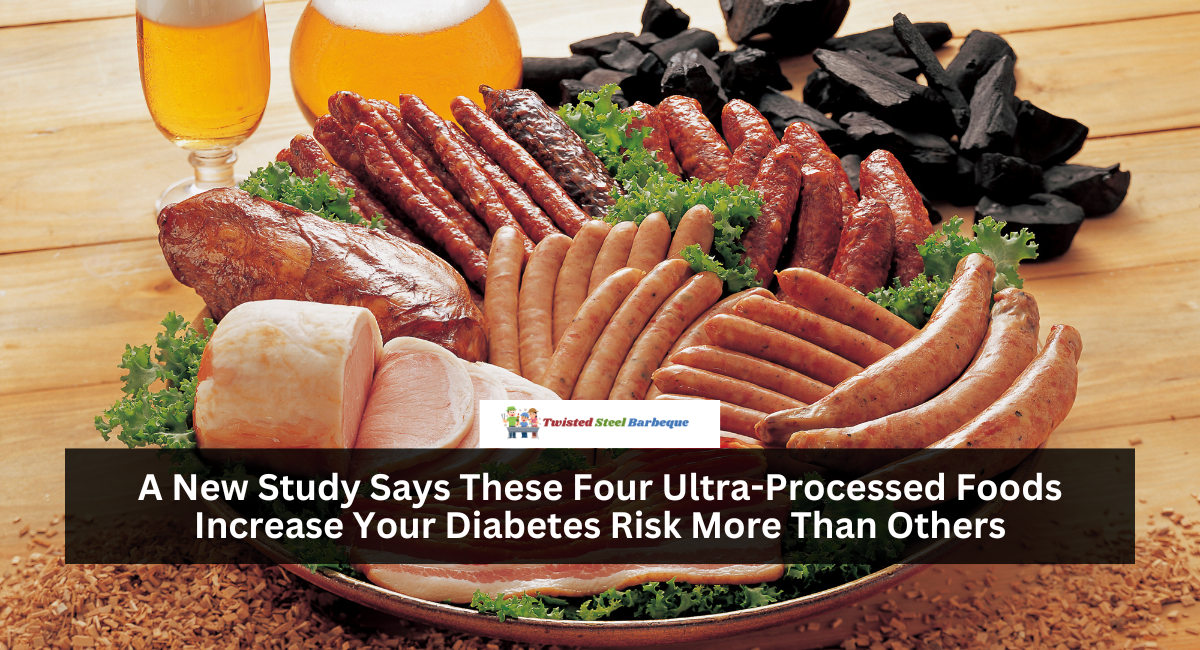Researchers have investigated how ultra-processed meals affect human health in recent years. While earlier studies have previously shown a link between heavy intake of these foods and Type 2 diabetes, recent study has found four particular kinds of ultra-processed meals that can greatly raise your chance of acquiring this illness.
Realizing the Research
Published in The Lancet Regional Health – Europe, the study tracked health for an average of 10.9 years using data from over 300,000 individuals spread over eight European nations. The results showed a worrying trend: a 17% increase in Type 2 diabetes risk for every 10% increase in the percentage of ultra-processed foods consumed by an individual.
Although this relationship is concerning, it’s important to realize that some ultra-processed meals are more dangerous than others. Before we get into the specifics, let’s define ultra-processed meals and type 2 diabetes.
Ultra-Processed Foods: What Are They?
Foods are arranged according to their NOVA scale of degree of processing. Foods fall into four groups on this scale:
- Unprocessed or minimally processed foods: Fresh fruits, vegetables, grains, and nuts unprocessed or lightly processed foods.
- Processed culinary ingredients: Oils, fats, sugar, and salt are among processed culinary components.
- Processed foods: Processed foods include some degree of canned veggies, cheese, and bread.
- Ultra-processed foods: Products classified as ultra-processed have been greatly changed from their natural condition and contain many components, such as artificial flavors, colors, and preservatives.
According to registered dietitian Scott Keatley, co-owner of Keatley Medical Nutrition Therapy, ultra-processed meals are commonly packed and ready to eat or ready to heat and contain substances hardly utilized in home cooking.
What is Type 2 Diabetes?
The chronic metabolic condition known as type 2 diabetes is typified by the body’s incapacity to generate enough or efficiently use insulin.
High blood sugar levels produced as a result can cause major medical issues including heart disease, stroke, nerve damage, and vision difficulties. Maintaining general health and avoiding associated disorders depend on controlling Type 2 diabetes.
Ultra-Processed Foods Raising Diabetes Risk
Although the study is observational and does not show causality exactly, it raises numerous ultra-processed meals connected to a higher risk of Type 2 diabetes:
1. Savory Snacks
Savory snacks known for being high in harmful fats, salt, and refined carbs include chips and salted boxed snacks. Keatley points out that these components can partially cause the major causes of Type 2 diabetes, inflammation, and insulin resistance.
Moreover, the extra salt in these treats might raise blood pressure, compromising cardiovascular health.
2. Extremely Processed Meats
Products include bacon, sausage, and lunch meats are heavy in salt, preservatives (including nitrates), and bad fats. For people worried about diabetes risk, these elements cause problems as they are connected to higher inflammation and insulin resistance.
Keatley underlines that processed meats are not a good option for a balanced diet as they are calorically packed yet have little nutritional worth.
3. Meals Designed for Ready-to-Eat
Though handy, ready-to-eat meals might be bad for your health. Keri Gans, a registered dietitian and author, notes many of these dishes include high levels of salt, added sugars, and saturated fats qualities linked to an increased risk of heart disease and several malignancies.
Moreover, ready-to-eat meals are sometimes deficient in fiber, protein, and other vital nutrients, which might encourage overindulgence and, over time, alter glucose metabolism.
4. Sugared Beverages
Type 2 diabetes has been linked to sweetened drinks including those with artificial sweeteners and added sugars. Added sugar, according to Gans, can aggravate inflammation in the body and cause other health problems like diabetes.
Although artificially sweetened beverages lack additional sugar, Keatley notes that they could upset gut flora and cause desires for sugary meals, indirectly influencing impaired glucose management.
The Silver Lining: Healthier Choices
The study’s good news is that by substituting unprocessed or slightly processed choices for ultra-processed meals, participants reduced their risk of Type 2 diabetes. A big impact may be made with foods such as eggs, milk, fruits, vegetables, and better-processed foods, including cheese, preserved fruits, and salted nuts.
Tips for a Healthier Diet
- Minimize ultra-processed foods: Reduce your intake of highly processed meals. Although you should enjoy them sometimes, these foods shouldn’t rule your diet.
- Emphasize whole foods: Add to your meals extra fresh fruits, veggies, nutritious grains, and lean meats.
- Stay updated: Learn about the components in your food and check labels. Select items free of less preservatives and additives.
Conclusion
Ultra-processed foods and Type 2 diabetes have a direct bearing on public health issues. Making wise dietary decisions is crucial as studies indicate that ultra-processed foods greatly raise the chance of acquiring this disease. Giving whole, minimally processed meals priority can help you be proactive toward your health and reduce your risk of chronic diseases.
Making these adjustments might help control blood sugar levels and improve general well-being, so it is a good investment in your health. Recall that small, persistent adjustments in your eating behavior can have major long-term effects.
READ MORE: This Dinner Shortcut from BJ’s Wholesale Club Is a Must-Have

